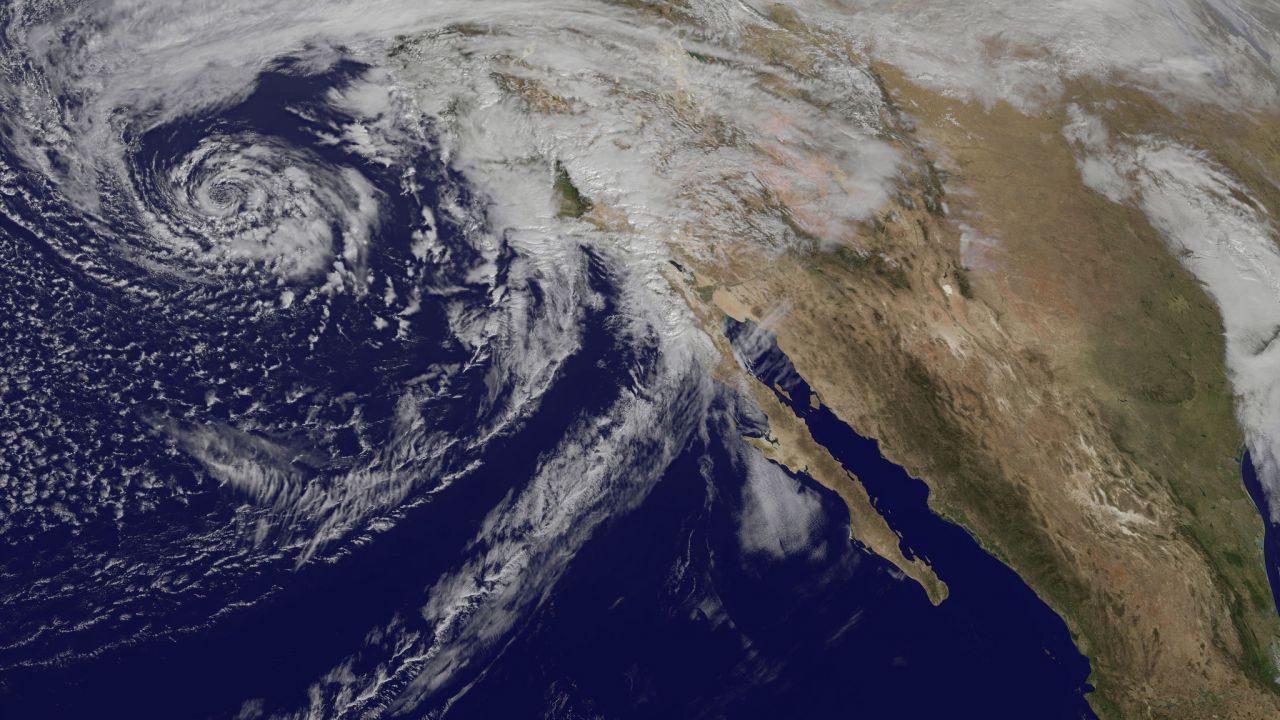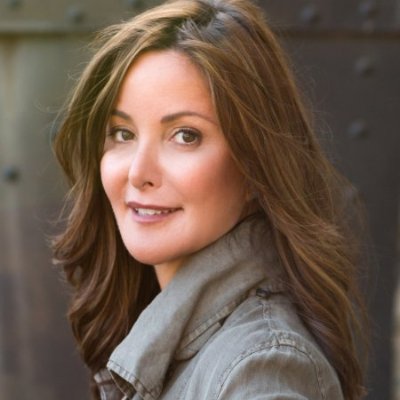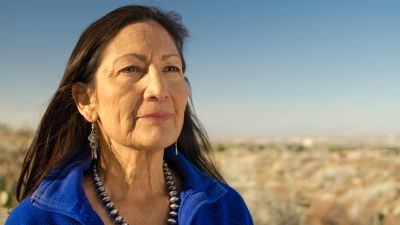
A swirling Eastern Pacific Ocean storm system headed for California was spotted by NOAA's GOES-West satellite on Feb. 28, 2014. (Photo by NASA Goddard Space Flight Center/ flickr CC 2.0)
This post originally appeared at The Macroscope.
President Trump’s decision to muzzle key areas of scientific research signals an important milestone. The latest battle in the War on Science has shifted into high gear.
Attacks on science might sound trivial compared to the larger political upheaval happening in America today, but make no mistake: the War on Science is going to affect you, whether you are a scientist or not.
In fact, it’s going to affect everything — ranging from the safety of the food we eat, the water we drink and the air we breathe. It will affect the kinds of diseases we get and the medicines we use. It will dictate what our kids are taught in school, what is discussed in the news and what is debated in Congress. It will affect the jobs we have, and what powers our economy.
Science touches everything we do, which is why the War on Science is so serious. This is a war that needs to be won.
But to win, scientists and science supporters — including those participating in the March for Science — need to take a new tack.
To start, here is what we recommend:
Portray an Inclusive Vision. First, science supporters must articulate a clear choice about the future that all Americans can relate to. Not something abstract, which only scientists care about — like levels of research funding, or pressures on scientists. This needs to be a choice that every American can appreciate.
Do we want to be the America that embraces science to advance our health, safety and prosperity, making us the leader of the world?
Or do we want America to mimic failed regimes of the past, where knowledge and science were suppressed to benefit a few or to funnel more profits into dying industries?
Many of us hold on to a vision of America that embraces science, technology and engineering. This is the America that defeated fascism. It won the Cold War. It landed on the moon. It cured polio. It is the beacon of knowledge and hope for the world.
We need more Americans to identify with this vision and to believe in it. Only then can we inspire them to advocate for it too.
Engage in Political Conversations. Traditionally, scientists have steered clear of the political fray. But if the past months have taught us anything, it’s that science is intimately connected to politics. It always has been. After all, politics is how we are supposed to solve problems in a democratic society, and science is crucial to nearly everything we do — our economy, our health, our security, our future. You cannot isolate science from politics, or politics from science. To try is folly.
That is why scientists shouldn’t shy away from engaging in political conversations. Now more than ever, it is necessary to be in them. We can start by demonstrating the critical role that science plays in people’s lives. What are the tangible benefits of science to society, and why does investing in science benefit us?
Science advocates should also pose important political questions, taking a more direct part in shaping the national discourse. For example, when “skeptics” try to undermine the validity of climate science, let’s explore their underlying motives, rather than simply defending the data.
Of course, scientists should always be professional, prudent and stick to their areas of expertise. Also, scientists should avoid partisanship. But the discourse of any modern nation depends on science. If scientists don’t lend their expertise to our broader conversations, who will?
Don’t Fall into the “Culture War” Trap. The War on Science is partly fueled by deepening social divisions over class, education, religion, urban versus rural lifestyles and a growing distrust in “experts” in America. This is all part of the larger Culture War we see in the country today, and its flames are being fanned by politicians and media icons who are trying to divide us.
Our advice to scientists: Don’t fall for it.
To focus on these false divisions is to get bogged down in fights over things like creationism versus evolution, faith versus science and our different views about our place in the universe.
Rather than magnifying these existential differences, science supporters would be wise to find common ground with people of faith. Given what we are up against, today’s truth-seeking scientists might have more in common with value-driven communities than most people realize. We all search for meaning, and share a deeply-held fascination with the natural world. In this way, science and religion are allies. Texas Tech professor Katharine Hayhoe is a good example of someone who is bridging these worlds, creating a constructive dialogue.
Don’t Fall for the Merchants of Doubt. Much of the War on Science will be subtly fought, casting doubt on well-established ideas. They don’t need to discredit well-founded scientific ideas, like climate change, they just need to create confusion and doubt. This is a well-known tactic, thoroughly documented in the book Merchants of Doubt.
At his confirmation hearings, EPA Administrator Scott Pruitt showed us the language of this approach. Manmade climate change, he says, is “subject to continuing debate.” Methane is released by fracking, but he’s “not deeply concerned.” And lead poisoning is “not something [he has] looked into.”
This subtle attack on scientific ideas, intended to sow doubt and confusion, has proven to be a reliable method for manipulating public perception, derailing research, censoring data, and stalling political action.
Balance Facts with Stories. Facts alone are not enough to win debates, let alone hearts and minds. Research shows that more knowledge can often deepen the divide between people on polarizing issues. “Individuals subconsciously resist factual information that threatens their defining values,” a recent study points out.
On the other hand, stories help build bridges of mutual understanding. They break down the barriers that keep people wedged into their preconceived notions, promoting empathy, trust, inspiration, and hope.
Astronomer Carl Sagan was a master storyteller. He had a way of weaving together the elements of science and wonder, and insight and awe. Not all scientist are great storytellers, but most scientists have great stories to tell. It often helps for people to understand the life story behind the science. This can go a long way toward building trust, helping hard facts get through.
Be Forceful. Finally, let’s not sugar coat the significance of this war. Powerful interests, some with huge profits at stake, have tried to undermine America’s scientists for decades. They’ve intimidated scientists. They’ve ridiculed them. (Occasionally, incited zealots have even threatened to kill them.) Powerful interests have also put up so-called “experts” who try to dispute the overwhelming body of evidence, yet offering none of their own, to deliberately sow confusion into the public consciousness.
These Merchants of Doubt execute an effective strategy, but only if we let them.
It’s time to call this out. The short-term gains of a few corporations and individuals must no longer rise above our national interests, our economic competitiveness, and most importantly, our safety, health, and well-being.
America has a choice to make. A choice between advancing civilization or bringing it down.
Now we must choose which side we are on.





